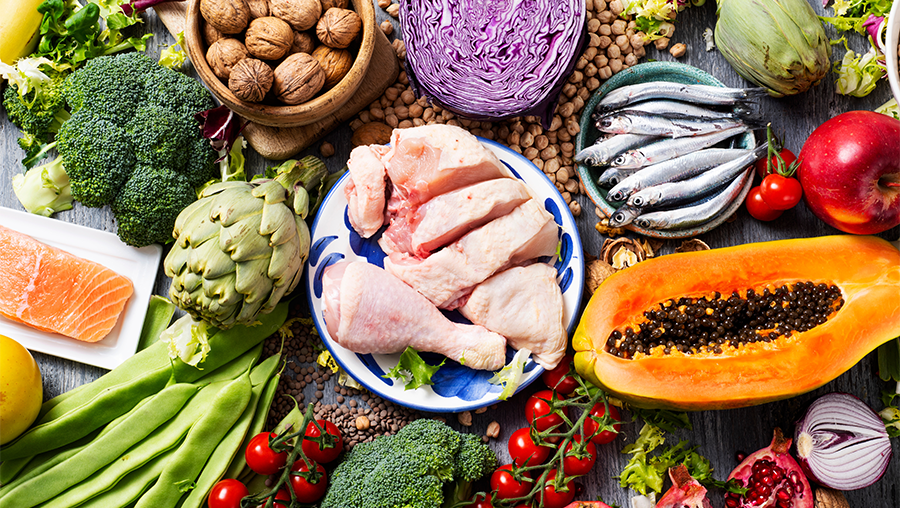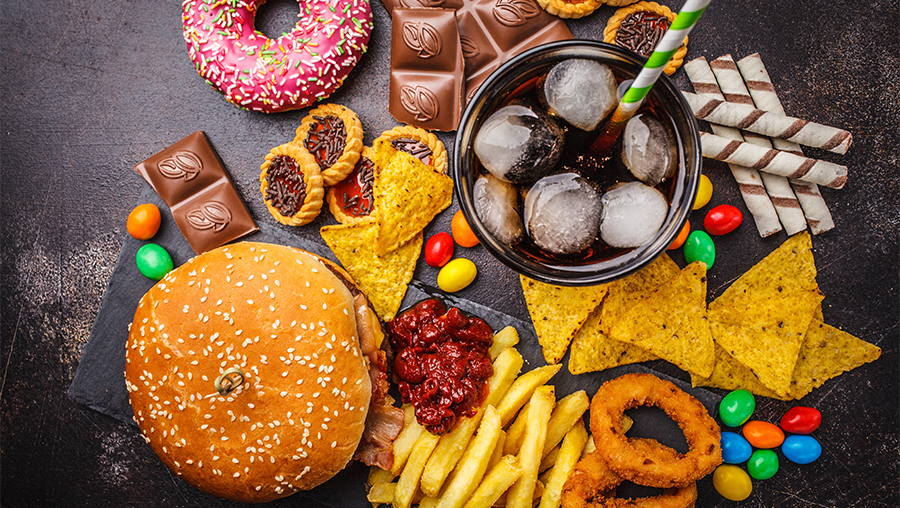
How does losing weight improve your health?
See the benefits of losing even 5% of your body weight.
For an obesity treatment plan to be effective, it needs to include changes to the way you eat. But research has shown that there is no “best” dietary approach when it comes to long-term weight loss.

Losing weight by following overly restrictive eating patterns does not work in the long term. People who have lost weight and kept it off found a way of eating that is sustainable for them. This includes being mindful of the least number of calories that you could maintain while taking into consideration the social and cultural role food plays in your life. Talk to your healthcare professional about the best dietary approach for your obesity treatment plan.
To help you find the least number of calories that works with your lifestyle, start by tracking what and how much you are eating. A food diary or app can help you become more aware of your calorie intake.
It’s a good idea to take notes to help you understand your eating patterns. Some things you can do to get a more complete picture of your eating patterns are:
Measure or weigh your food, so you’re more aware of your portions
Identify your high-risk time(s) of day (i.e., the times when you’re more likely to eat or drink larger amounts, and the times when you find yourself eating when you’re not hungry)
Note the calorie content of various foods
Healthy eating is important for everyone, regardless of body size, weight or health status.
Healthy eating fuels our body. Whole, unprocessed foods provide the most nutrients and are generally lower in calories.
Vegetables, grains, fruits, nuts, fish, meats, eggs and milk.

Bread, cheese, tofu, and canned vegetables, fruits, meat or beans.

Soft drinks, chips, ice cream, chicken nuggets, hot dogs and fries.

According to research, eating lots of whole grains, fruit, nuts and dairy can protect against gaining weight and developing obesity. In contrast, white bread, meat, sweets and desserts promote weight gain and increase your waist size.
Whole grains can be good for your weight and BMI. Whole-grain foods reduce hunger and the desire to eat while increasing feelings of fullness compared to refined grain foods.
Whole-grain foods include:
Oats
Brown rice
Rye
Buckwheat
Quinoa
Millet
Bulgur
There are some simple swaps you can make to include more whole grains in your eating patterns. For example, try rye or whole-wheat bread instead of white bread.
These are the foods that Canada’s Food Guide recommends that you eat to help you manage weight:
Fruit
Vegetables
Legumes
Nuts
Whole grains
Extra virgin olive oil
If you’re trying to manage weight, you may want to avoid these ultra-processed foods or eat less of them:
Soft drinks/sugary drinks
Chips and pretzels
Ice cream and frozen desserts
Fast food like French fries and hamburgers
Processed deli or sandwich meats (such as hot dogs)
Alcoholic beverages
When you’re making dietary changes as part of an obesity management plan, it’s important to find a dietary approach that works for your lifestyle. Try focusing on whole foods and limiting ultra-processed foods as much as possible.
Talk to obesity care providers who specialize in managing obesity for more help with making long-term dietary changes.
See the benefits of losing even 5% of your body weight.
Not sure where to start with changing your dietary approach for obesity treatment? Here are 3 tips to make it easier to stick to.
Meal planning is a key tool for obesity treatment through dietary changes. By planning your meals ahead of time, it's easier to make long-term adjustments to your dietary approach.
Planning meals can help you add more fruits, vegetables and whole grains into your eating pattern by giving you the chance to decide what you'll eat in advance. Meal planning can also help you save money and shop more efficiently.
By planning your meals, you can also reduce some of the anxiety and stress associated with mealtimes.
Research shows that monitoring what you eat could have a positive impact on losing weight. Keeping a food diary is one method of self-monitoring that’s really easy to do.
Try journaling to keep track of the food and drink you have every day, the times you eat and how you feel when you’re eating. You can also jot down where you're eating, what you’re doing and who you’re with.
A food diary gives you a better idea of your day-to-day eating pattern and how it affects you. This can help you recognize patterns and see where you can improve your dietary approach, such as eating more fruit, vegetables and whole grains.
There's also some evidence to suggest that drinking more water can help improve the outcomes of a dietary approach for obesity treatment.
Drinking more water is especially effective when you also drink less high-calorie drinks. A simple swap in your obesity treatment is switching soda for water.